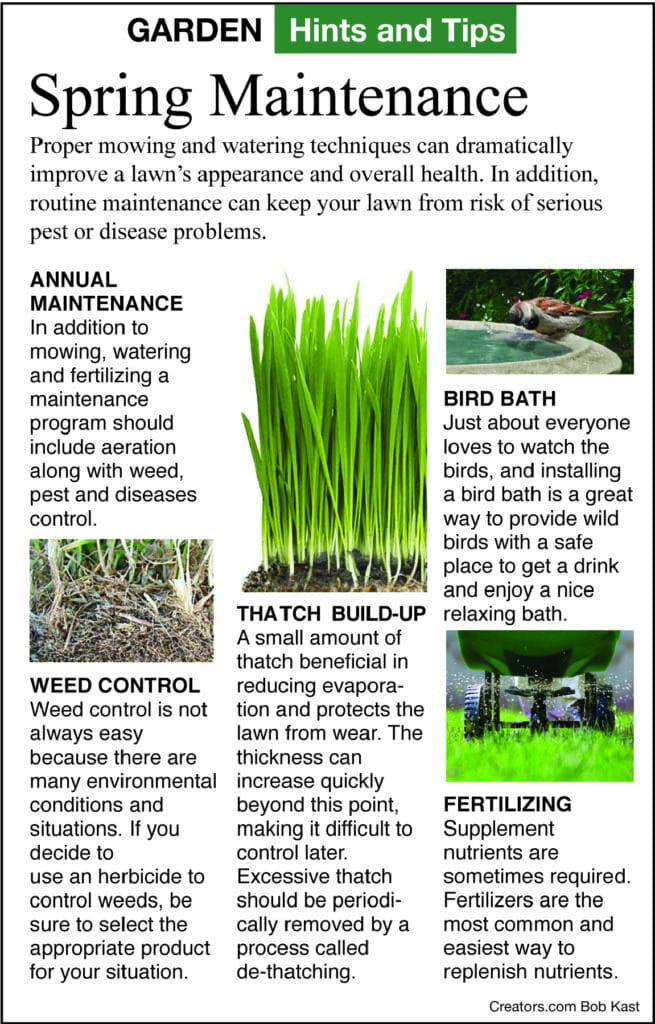Search Posts
Recent Posts
- Rhode Island Weather for June 4, 2025 – Jack Donnelly June 4, 2025
- Sour Grapes time! – Tim Jones (meet Tim at AnimeCon) June 4, 2025
- Lawsuit filed to stop Empire Wind Project by 4 environmental groups and fishermen June 4, 2025
- It is what it is: 6.4.25 – Jen Brien June 4, 2025
- New ALS treatment by PathMaker Neurosystems. Co. funded by RI Life Sciences Hub to come to RI. June 3, 2025
Categories
Subscribe!
Thanks for subscribing! Please check your email for further instructions.

Introducing… A Greener View: Tips from Earth Day with Jeff Rugg
By Jeff Rugg, contributing writer
Editor’s note: We introduce Jeff Rugg & A Greener View, and over the spring and summer season he will be sharing tips on making the earth around you greener, more productive, and more healthy. This week we start at the beginning – the soil.
Tips from Earth Day
Earth Day was just two weeks ago. And now that it’s warmer, how earth-friendly are your landscape maintenance practices? You can make your landscape a friendlier place through a few small changes.
All of the plants in your landscape would benefit from better soil. Except for desert regions, adding compost to planting beds will make our plants healthier. A thin coat of compost on a lawn will fertilize and help hold in water. Microorganisms will break down the compost as part of a healthy soil ecosystem.
Ecosystems are built on diversity. Add more kinds of plants to your landscape to get more kinds of insects, birds and mammals. Plants native to your region will support local insects, which will support local birds. The bigger variety of insects will mean there are more beneficial insects that are predators of any pest insects.
Lawns are safe, beneficial places for kids and pets to play, but the amount of chemicals applied to them is often unnecessary. Don’t apply a weed killer to the whole lawn when there are only a few weeds.
Speaking of chemicals, remember that organic does not mean it is safer. Follow the label directions and only apply chemicals when other pest control techniques have failed. Inspect your landscape regularly to be able to spot insect and disease problems as they arise and not after they have caused a lot of damage.
Add flowering plants to your landscape that bloom in more seasons. Plant early bloomers, summer bloomers and fall bloomers. The insect species that come to your landscape in the spring are not the same kinds that come in the fall.
Make your landscape pollinator-friendly by adding more plants that have nectar and pollen. Use fewer double-flowering flower varieties that transform anthers into petals. Double flowers look pretty but don’t help pollinators.

Your landscape only has boundaries to you. Animals see your landscape as part of the overall ecosystem. Animals need food, water and shelter from the ecosystem. How many of those does your landscape provide? With a lot of flowers, trees and shrubs, your landscape provides food and shelter. Adding water will especially help attract birds. Birds eat insects, so add water to reduce the number of insects feeding on your plants.
Attend classes offered by your local Extension Service Master Gardener program. Learn which plants are invasive in your region and remove them from your landscape.
Watch the over 250 YouTube videos on the Greener View channel. Read my “Greener View Gardening” book that was written for anyone who needs to take care of a landscape or who likes plants. Go to greenerview.com and used the promo code “Easter Lily” for the rest of April 2023 to get $30 off the price of the book.
___
This article is AI-free.

Jeff Rugg – With degrees in science, zoology, horticulture and landscape architecture Rugg uses his many interests to help others learn about nature. He has managed garden centers in Texas and Illinois and owned a water garden and wild bird nature store.
He is currently an employee of Pond Supplies of America. His articles and photographs have appeared in Pond Keeper, Water Garden Magazine, Landscape Architect and Specifier News, Landscape Contractor Magazine, Ponds USA, American Nurseryman and other publications. He is currently an Illinois Certified Nurseryman and Registered Landscape Architect.
Email questions to Jeff Rugg at info@greenerview.com. To find out more about Jeff Rugg and read features by other Creators Syndicate writers and cartoonists, visit the Creators Syndicate website at www.creators.com.
COPYRIGHT 2023 JEFF RUGG – DISTRIBUTED BY CREATORS
